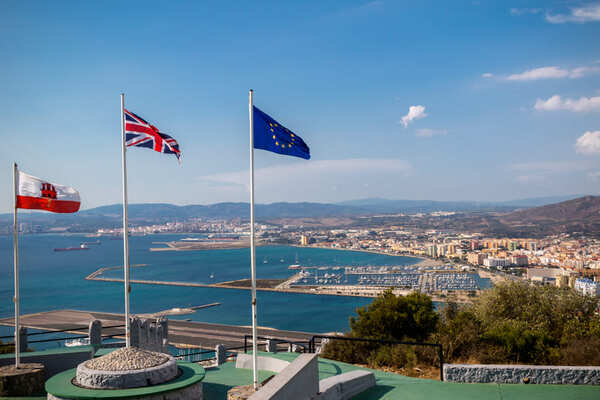The United Kingdom officially left the European Union on January 31, 2020. It began an 11-month transition period in which it would negotiate the terms of a deal with the EU. However, an arrangement verifying freedom of travel between Spain and Gibraltar would not be reached until the end of the process.
After Brexit, it has now been announced that the area would be included in the Schengen accord for passport-free travel between members, allowing around 14,000 workers and employees to continue to access and depart the semi-exclave every day without a passport.
This article examines how changes to Gibraltar, as the newest addition to the Schengen Area, may affect visitors to “the Rock” and how the agreement will work.
How Gibraltar Joined the Schengen Zone
On December 31, 2020, only hours before the UK was set to leave the EU, Gibraltar also completed the Brexit deal. The UK and Spain decided to maintain temporary free travel between Spain and Gibraltar while maintaining Gibraltar’s status as a British Overseas Territory.
The deal permits Gibraltar to be included in the Schengen Zone treaty for passport-free travel, though it will not be wholly integrated into the European Commission’s Schengen information databases.
According to the ministry of foreign affairs in Spain, Gibraltar will still be required to follow the same standards of fair competition inside the EU as other Schengen nations under the new agreement.
Gibraltar Border Control is still up for Debate
For a limited term of up to four years, the EU will deploy the Frontex border patrol to allow freedom of movement across Spain and Gibraltar.
The agreement means Gibraltar’s airport and seaport are now within the Schengen Area’s external borders. However, it’s unclear whether Spanish border officials will be stationed there.
They believe that Spanish presence is required to fulfill the essential tasks of Schengen control since Schengen is a set of regulations, processes, and resources, including its data, to which only Spain has access.” The United Kingdom and Gibraltar do not.”
However, Fabian Picardo, the minister of Gibraltar, has contested that Spain will have absolute control over who travels to the Schengen Zone in the territory, claiming that only Gibraltar will be under the New Year’s Eve Agreement to determine who enters Gibraltar.
Nonetheless, González Laya stated that the government would try its best to maintain “as fluid” mobility at the common land border until the arrangement is negotiated into a convention between the UK and EU, which she predicted would take up to 6 months.
For Travelers from Spain to Gibraltar
The British and Spanish governments have had a treaty in place for a long time that allows Spanish nationals and British citizens of Gibraltar to move through the territory quickly. Previously, travelers with EU or British passports or EU ID cards had to produce their identification for scrutiny at the border crossing.
The new deal will keep Spanish citizens and Schengen nationalities from needing a passport to visit Gibraltar and allow Gibraltar residents to travel freely to the Schengen Zone only by providing their ID card.
Fabian Picardo expressed delight at the news, calling the agreement a “success” that will enable the territory to develop deeper ties with Spain and other countries of the European Union.
Almost 96 percent of Gibraltar’s inhabitants chose to remain in the EU in the Brexit referendum. Even though Gibraltarians are British nationals, they vote for their independent representatives in the territory’s House of Assembly.
Visiting Gibraltar from the United Kingdom after Brexit
Since Gibraltar has entered Schengen, UK citizens may require an ETIAS visa waiver in the future to visit “the Rock.”
This new ETIAS Visa Waiver Program is expected to go live in 2025. This does not affect those with European golden visa or citizenship. It will require all visitors from visa-free countries visiting the Schengen Zone to apply online and receive travel authorization before entering any Schengen countries, including Gibraltar.
